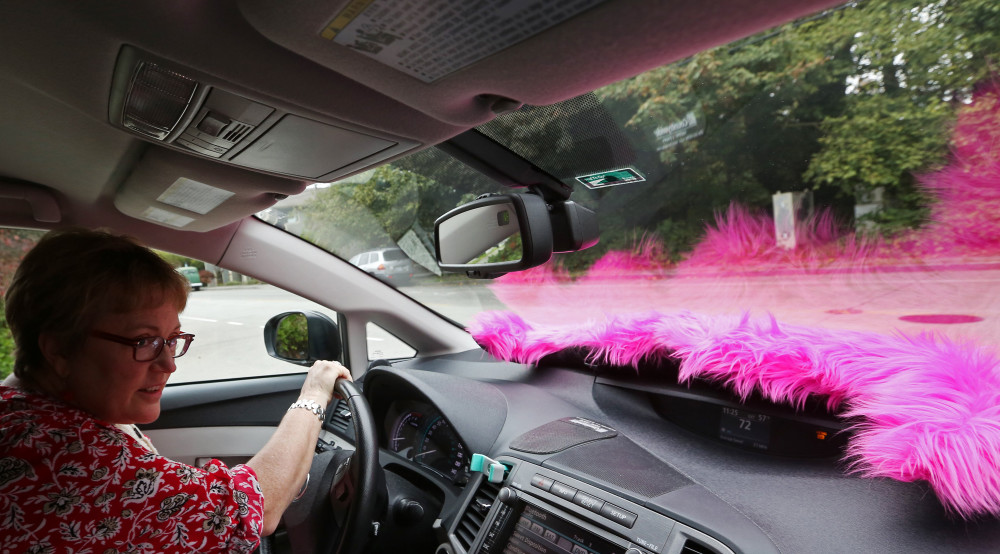By Howard Mintz
San Jose Mercury News.
SAN FRANCISCO
Patrick Cotter, who worked for social media titan Facebook, and Tadj Correia, an actor, are prototypical drivers for Uber and Lyft, moonlighting for the ridesharing services to boost their bank accounts.
But scratch the surface, and both Cotter and Correia represent something else to a booming sector of the new tech economy, a dark cloud over the very business model that has propelled a seemingly simple smartphone app service such as Uber into a Silicon Valley colossus now valued at more than $40 billion.
Lyft and Uber drivers have mounted major legal challenges to that business model, arguing that they should be classified as employees, rather than independent contractors, a distinction that entitles them to strong protections and benefits under California law and threatens the cost structure of the so-called sharing economy.
Cotter, a lead plaintiff in the Lyft case who could not be reached for this story, contends in court papers he was deprived by the company known for its pink mustachio icon of everything from minimum wages to expenses such as gas and repairs for the car that he used to whisk passengers around in 2013.
For Correia, the case is about fairness.
“It seems lopsided to me,” Correia said. “As a driver, I feel like I’m a lab rat. Disposable.”
Two San Francisco federal judges, while not ready to go that far in categorizing Uber and Lyft, this spring gave the two legal challenges a significant boost, giving the drivers the green light to take their cases to a jury trial.
However, both judges forecast how difficult it will be for the courts to apply existing labor laws and legal precedent to the still-evolving on-demand economy, from ride-sharing firms to apps such as San Francisco’s Homejoy, which links people to cleaning services. “The jury in this case will be handed a square peg and asked to choose between two round holes,” U.S. District Judge Vince Chhabria observed. “The test the California courts have developed over the 20th century for classifying workers isn’t very helpful in addressing this 21st century problem.”
Lawyers for Uber and Lyft declined to comment but make it clear in court papers that they consider their drivers independent contractors, with an emphasis on “independent.”
In particular, the companies stress that drivers can work as much as they want and when they want, a come-and-go-as-you-please form of employment that gives them a financial slice of each Uber or Lyft ride they provide. In fact, the companies note that many drivers are signed on the same day with multiple ride-sharing apps, including Uber, Lyft and Sidecar.
And there are plenty of drivers who consider that freedom an attraction.
“If you’re an employee, you’re obligated to do those hours,” said Jerry Ramirez, who drives for Uber in San Jose to add income to his job as an emergency room technician. “I like it as an independent contractor. You are free to do whatever you want.”
But the class-action lawsuits against San Francisco-based Uber and Lyft argue it is not so simple. Boston lawyer Shannon Liss-Riordan, who represents the drivers and is fast developing a national reputation as a nemesis for the sharing economy industries, said Uber and Lyft still maintain control over the drivers and their work, right down to being able to fire them.
From rating the drivers through passenger reviews to rules specifying what music can be played in the cars, the lawsuits maintain Lyft and Uber treat their workers like employees. As a result, drivers say they should be entitled to classifications that give them unemployment insurance, workers’ compensation, overtime and other rights.
A jury could hear those claims as soon as late this year or early next year, and drivers are expected to seek thousands of dollars each in damages from Uber and Lyft, in addition to trying to force changes to their business practices.
Liss-Riordan balks at the suggestion that providing such employee legal status would damage the business model.
“I don’t buy the argument that these companies can’t survive while providing worker protections,” she said.
Legal experts say the outcome could be crucial to shaping the on-demand model in the future, and that there is legal precedent to provide guidance. Just last year, the 9th U.S. Circuit Court of Appeals rejected Federal Express’ arguments that its drivers should be labeled independent contractors in a case that raised similar issues.
William Gould IV, a Stanford University law professor and former chairman of the National Labor Relations Board, calls the Uber and Lyft cases “a close call.”
“These cases are certainly pushing the boundary,” added Rachel Van Cleave, dean of Golden Gate University law school. “It is not easy to see where the line is.”














































































































































































































































































































































































